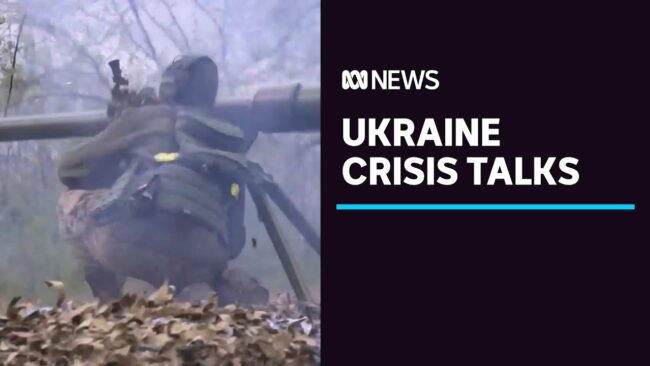Russia, US Still At Odds After Talks Over Ukraine
Russia and the U.S. are still at odds Monday after talks aimed at defusing tensions over Ukraine, with Moscow insisting on guarantees to halt NATO’s eastward expansion and even roll back the military alliance’s deployments in Eastern Europe, and Washington adamantly rejecting the demands.
With both sides unwilling to budge on their positions and Ukraine’s future at stake, Deputy Foreign Minister Sergei Ryabkov said “no progress” was made on the central demand to stop NATO expansion, although he insisted: “We have no intention to invade Ukraine.”
Sherman said the talks were a “frank and forthright discussion.”
“It was not what you would call a negotiation, she said in a conference call with reporters. “We’re not to a point where we’re ready to set down texts and begin to go back and forth.”
“We were firm, however, on pushing back on security proposals that are simply nonstarters for the United States,” Sherman said, adding “we will not allow anyone” to shut NATO’s “open-door policy” that extends to countries seeking entry into the alliance.”
Adding that Washington “will not forgo bilateral cooperation with sovereign states that wish to work with the United States. And, we will not make decisions about Ukraine without Ukraine, about Europe without Europe or about NATO without NATO.”
Russian President Vladimir Putin stated that NATO expansion to Ukraine and other former Soviet states is a “red line” for Moscow, demanding binding guarantees from the West that they wouldn’t become members of the alliance.
Moscow has sought to exact several concessions from the U.S. and its Western allies and has now amassed an estimated 100,000 troops near Ukraine, raising concerns about a possible military action there.
“The situation now is so dangerous, and so — I would say — precarious that we cannot afford any further delays in resolution of this very fundamental question,” Ryabkov said at a news conference. “As President Putin said, on many occasions, ‘we cannot backpedal. We cannot go backwards. There is no further space for us to do so.’”
Ryabkov listed Russian concerns and demands first issued last month on subjects like NATO expansion and wanting Western commitments not to deploy offensive weapons near Russian borders.
“The American side has treated the Russian proposals seriously and deeply studied them,” he said, adding that he characterized Moscow’s demand for legally binding guarantees that NATO would not move eastward was “an absolute imperative for us.”
Ryabkov stressed that it would be hard to address other issues if the U.S. stonewalled on Russia’s key demands.
“If now NATO proceeds towards deployment of capabilities that are being developed very rapidly in the U.S., and will possibly be introduced somewhere in Europe, it would require a military response on the Russian part, that is a decision to counter this threat through means at our discretion,” Ryabkov said, speaking in English. “That will inevitably, unavoidably damage the security of the U.S. and its European allies.”
Echoing like comments from Secretary of State Antony Blinken, Sherman said progress could only be made if Russia “stays at the table and takes concrete steps to de-escalate tensions.”
“We’ve made it clear that if Russia further invades Ukraine there will be significant costs and consequences well beyond what they faced in 2014,” she said. “Russia has a stark choice to make.”
The meeting was part of the “Strategic Security Dialogue” about arms control and other issues brought forth by Putin and U.S. President Joe Biden at a June summit. Talks between Russia and NATO are planned Wednesday in Brussels followed by a meeting in Vienna of the Organization for Security and Cooperation in Europe on Thursday.
The U.S. downplayed anticipation of real progress this week and said some demands such as a possible halt to NATO expansion, go against countries’ sovereign rights to set up their own security arrangements, and therefore are non-negotiable.
But U.S. officials have a willingness to discuss other ideas, like curtailing possible future deployments of offensive missiles in Ukraine and limiting American and NATO military exercises in Eastern Europe — if Russia is willing to back off on Ukraine.
Blinken said Sunday that he doesn’t anticipate any breakthroughs. Instead, he said a more probable positive outcome would be an agreement to de-escalate tensions in the short term and return to talks at some time in the future. But the U.S. will have to see a de-escalation for there to be actual progress.
“It’s very hard to see that happening when there’s an ongoing escalation, when Russia has a gun to the head of Ukraine with 100,000 troops near its borders, the possibility of doubling that on very short order,” Blinken said.


We didn’t have problems with Trump in the WH. This all started when a gutless asshole got put in the WH. Oh, and Bliken? A real moron